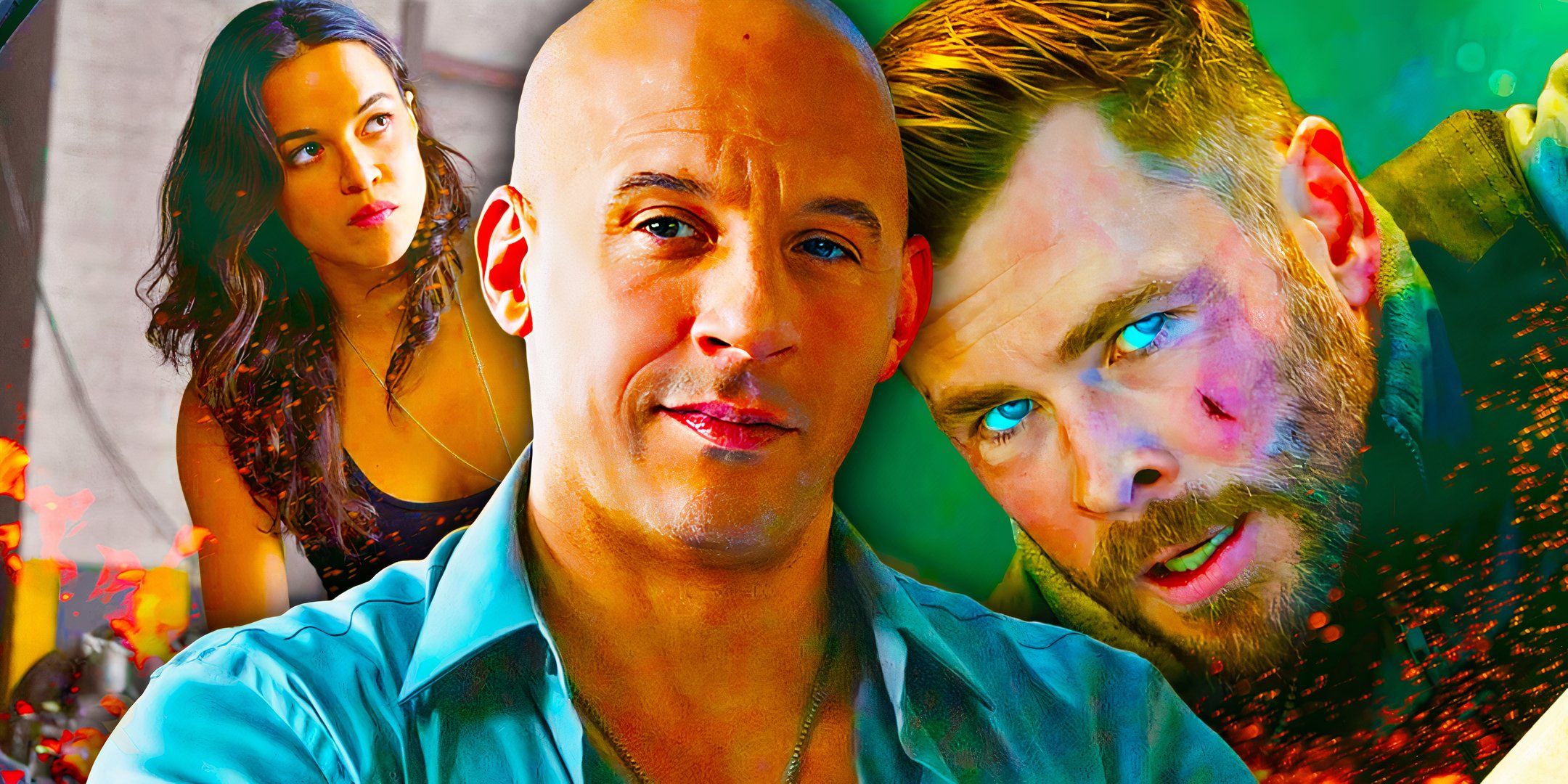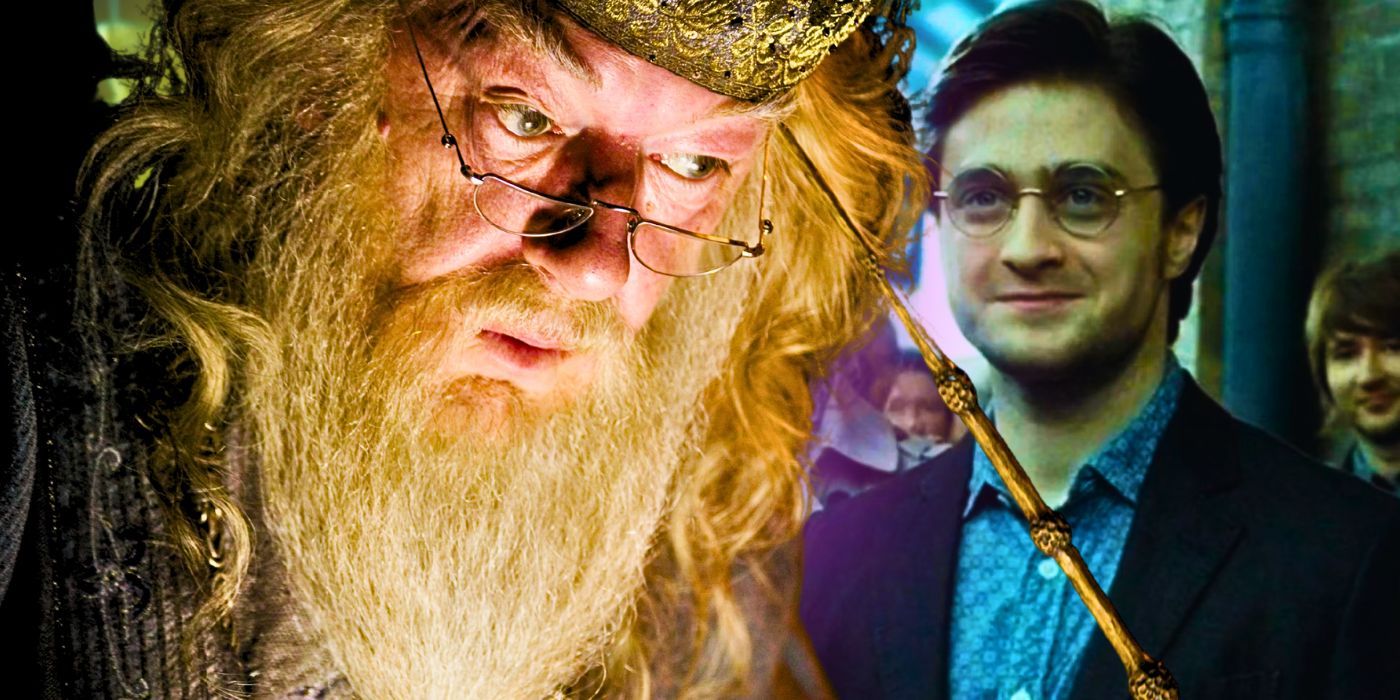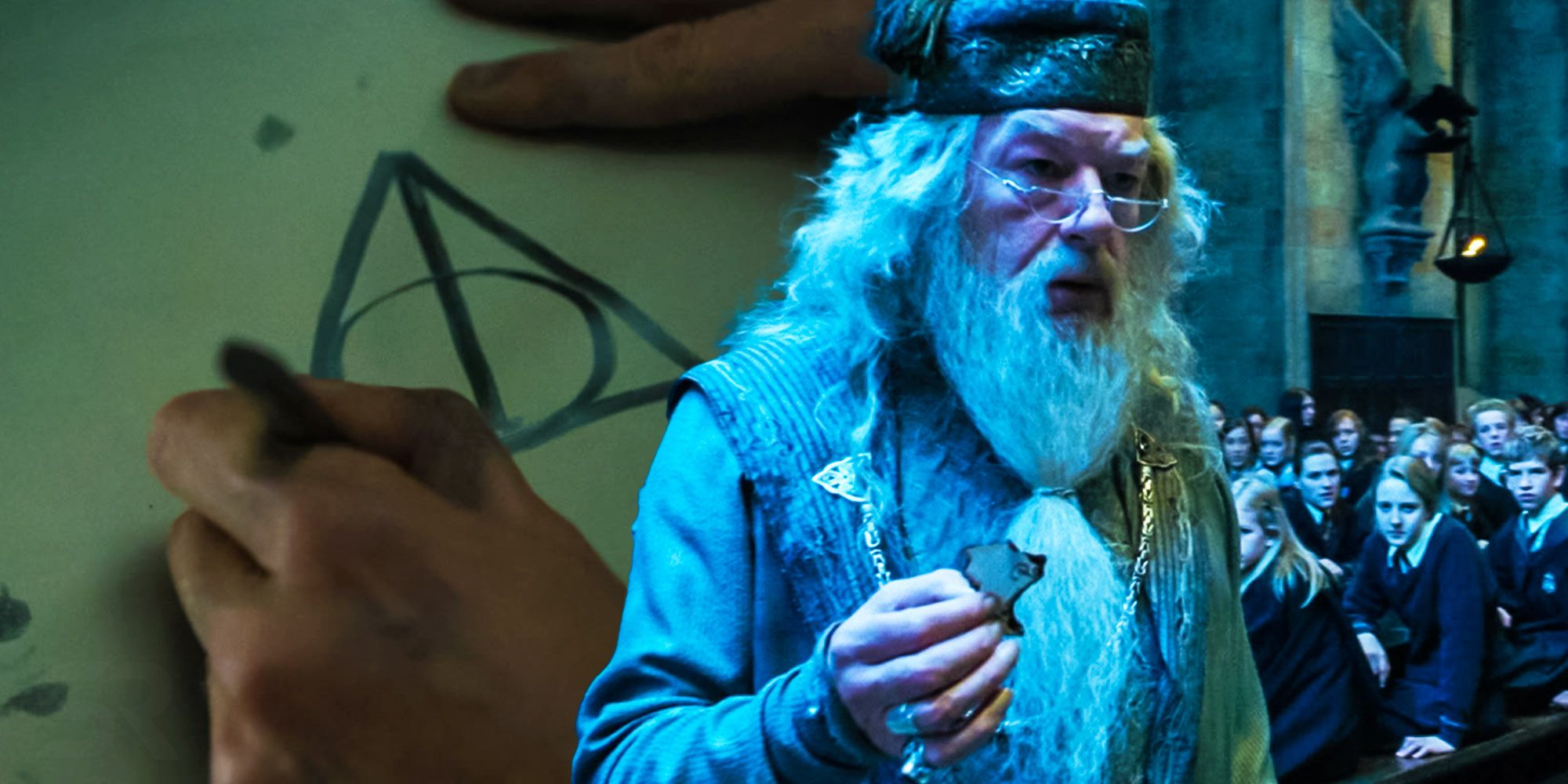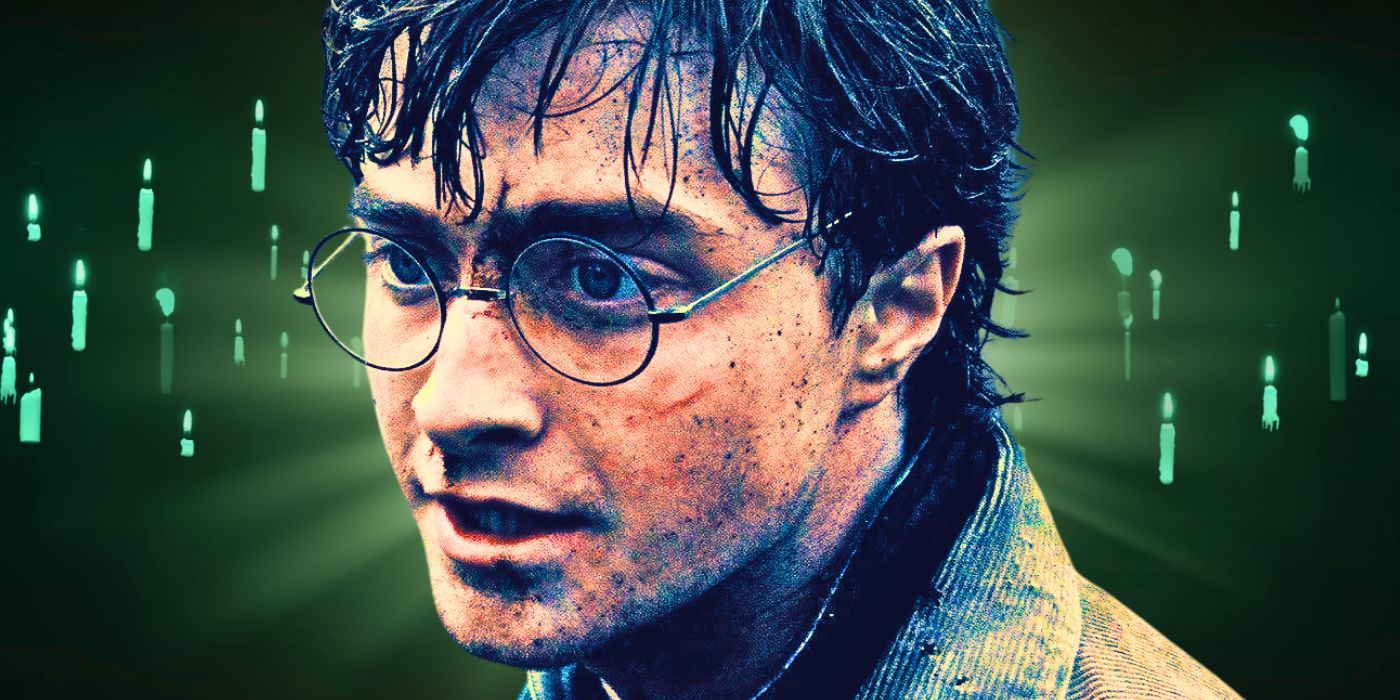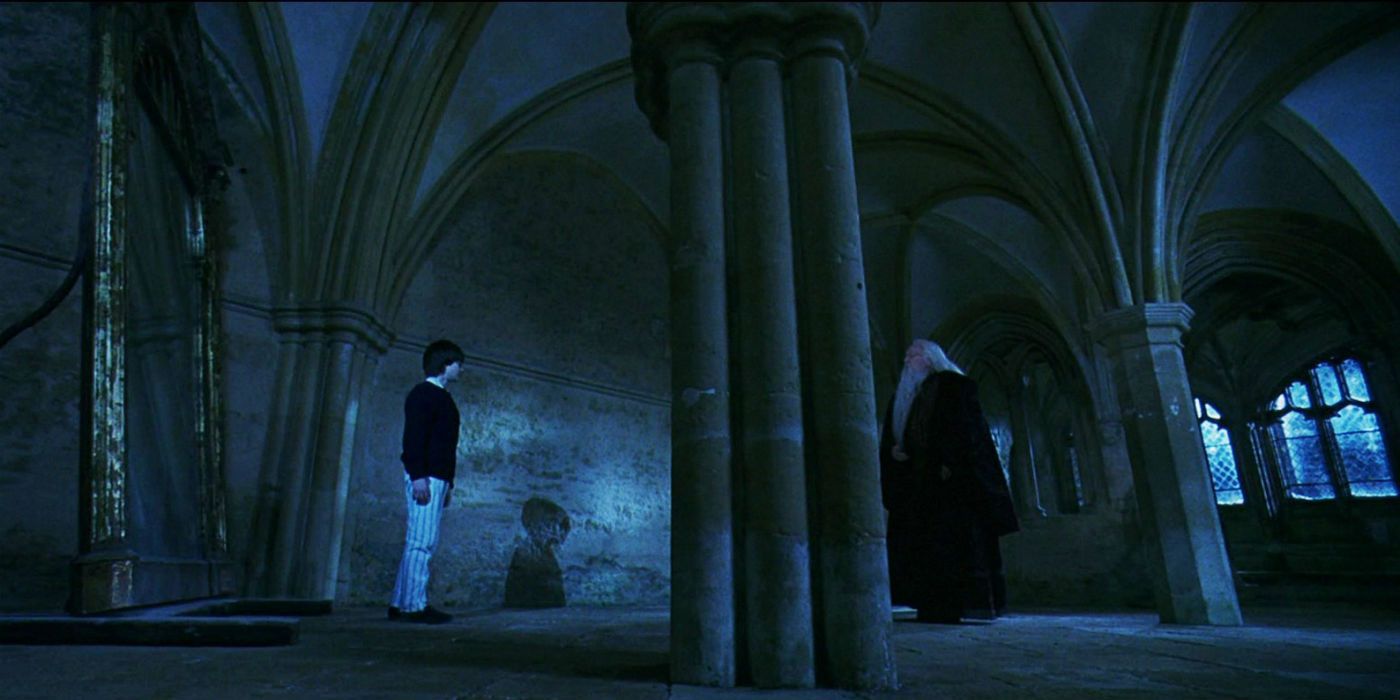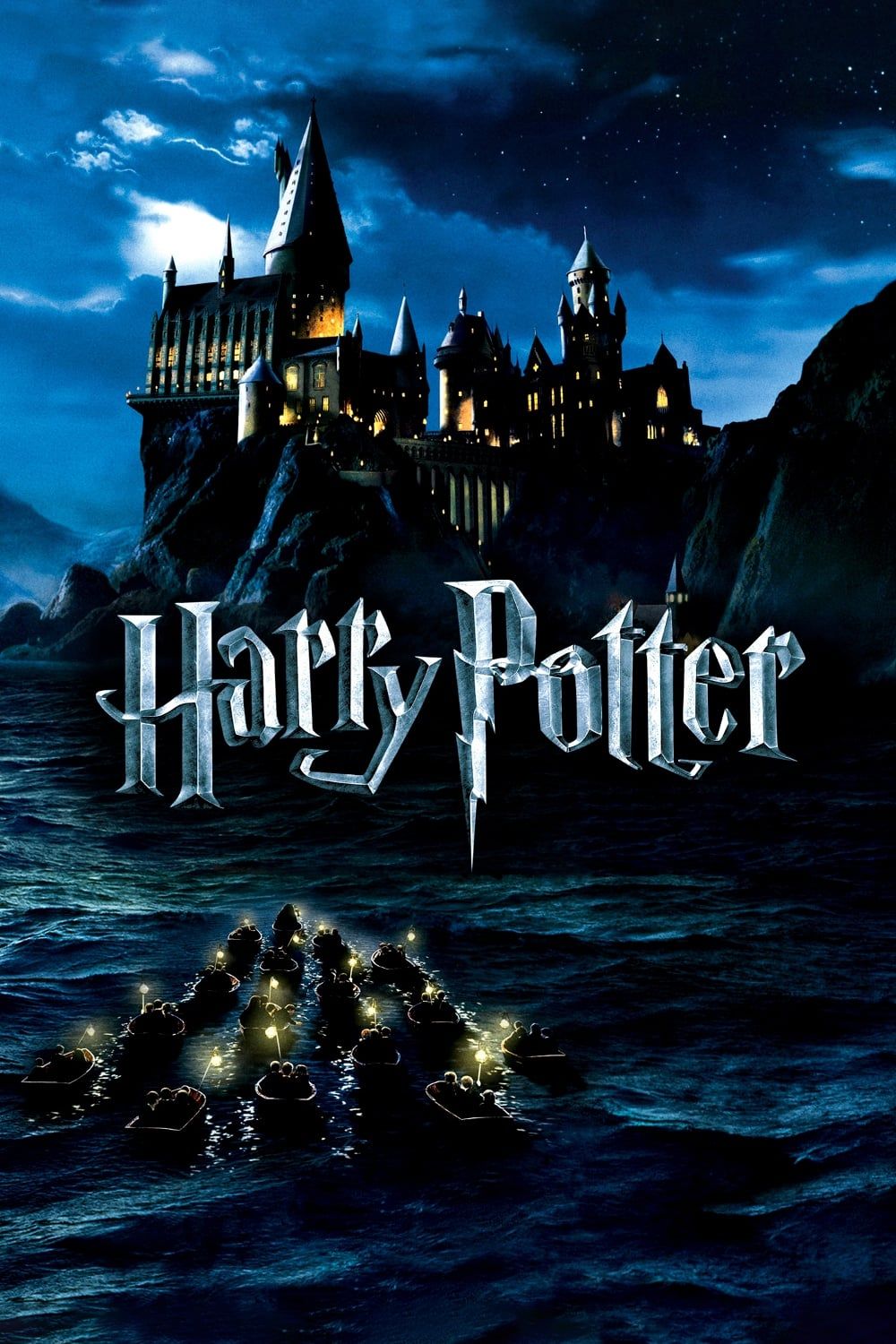Summary
A common Harry Potter theory claims that Albus Dumbledore was the first Master of Death, but Harry's ending proves this wasn't the case. The title of "Master of Death" was fairly present throughout Harry Potter and the Deathly Hallows, when the Boy Who Lived was first introduced to the three Hallows that, when united, would give the owner authority over Death himself. By the end of the story, Harry had miraculously gained this status, having acquired ownership of all three Hallows. However, since Dumbledore possessed each for a time, he is sometimes considered the first Master of Death.
The Deathly Hallows were three powerful magical objects invented by (or gifted to) the three Perverell brothers (Antioch, Cadmus, and Ignotus) centuries before the start of Harry Potter. Antioch was the first owner of the Elder Wand, which was fabled to be unbeatable. Cadmus had possession of the Resurrection Stone, which could bring back dead loved ones. Ignotus carried the Cloak of Invisibility, which flawlessly hid its wearer without fading. Over the years, a legend evolved that deemed anyone who owned all three the Master of Death, but this turned out to be a nearly impossible quest.
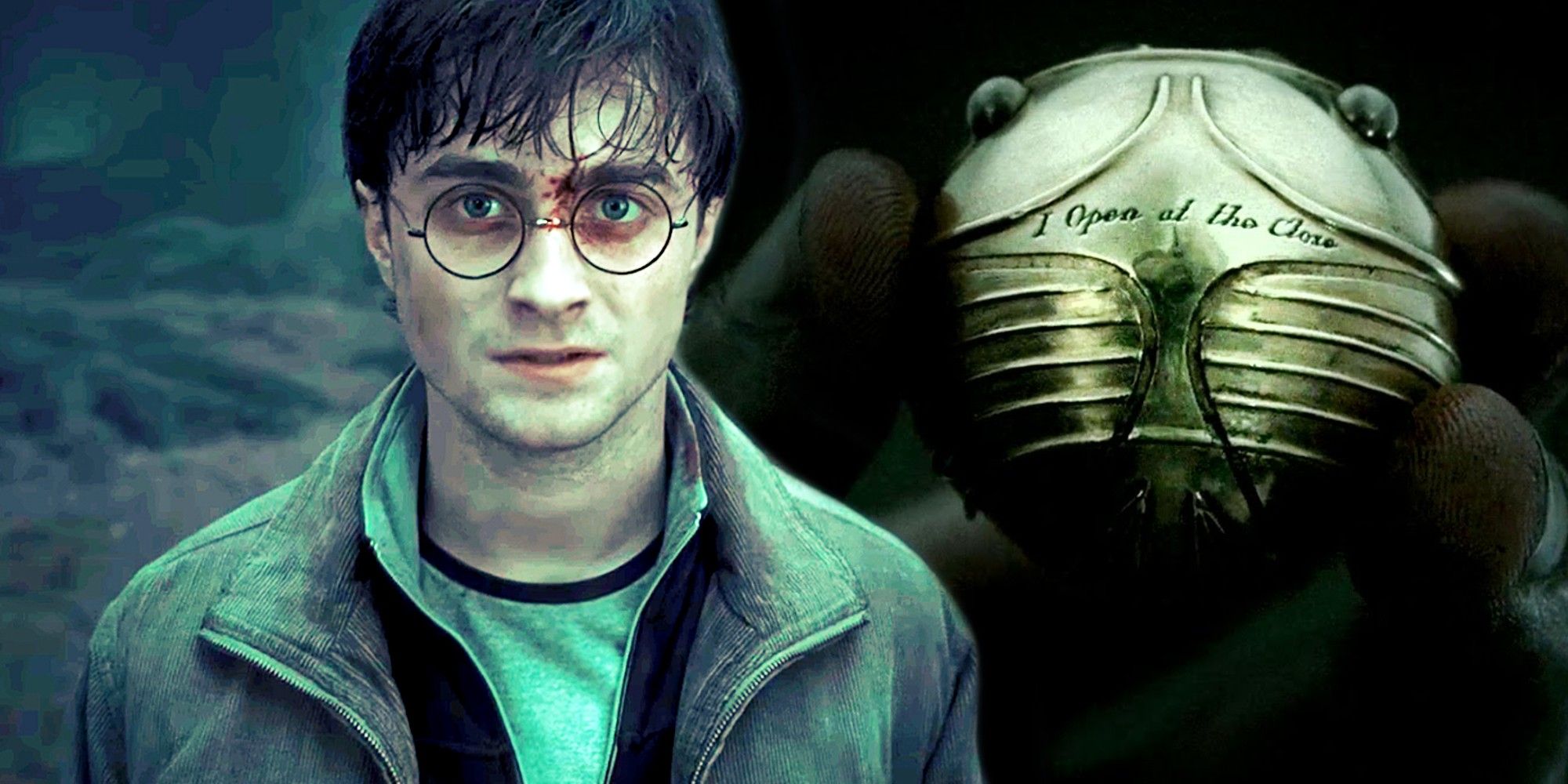
"He Greeted Death As An Old Friend": What It Really Meant To Be Master Of Death In Harry Potter
Harry Potter united the Deathly Hallows, therefore becoming the Master of Death - but this didn't mean he was made immortal as questers believed.
A Popular Harry Potter Theory Claims Dumbledore Was Master Of Death First
Dumbledore Had Possession Of Each Of The Deathly Hallows At Different Times
When Albus Dumbledore first left Hogwarts school, he became fascinated with the Deathly Hallows, and he and his friend, Gelert Grindelwald, joined the quest to find them. After the pair's falling out and the death of Ariana Dumbledore, Albus abandoned his search. However, his duel with Grindelwald in 1945 made him the unwilling owner of the Elder Wand. Over the following years, Dumbledore also miraculously got his hands on the other two Hallows. He realized that James Potter's cloak was Ignotus' heirloom and, later, that Voldemort's Horcrux was the Resurrection Stone.
The fact that Dumbledore had his hands on each of the Deathly Hallows at different times has inspired the theory that he was Master of Death. He was the first known person in the wizarding world to have ever obtained the Hallows, and the fact that he welcomed his own death seemed to imply mastery as defined in The Tale of the Three Brothers. Additionally, Harry became Master of Death despite never holding all three Hallows at once, reinforcing that the same was true for Dumbledore. However, there is a significant problem with this reasoning.
Dumbledore greeting Harry at the King's Cross Purgatory in Deathly Hallows has also bolstered the theory that he is the Master of Death—or Death himself.
Only The Elder Wand (& Not The Other Hallows) Was Loyal To Dumbledore
A Person Must Have The Loyalty Of All Three Deathly Hallows To Become Master Of Death
While it's true that both Harry and Dumbledore possessed each Hallow at different times (rather than all together), Harry qualified as Master of Death because he had the loyalty of all three Hallows at one time. This was not true for Dumbledore, who gained only the loyalty of the Elder Wand when he defeated Grindelwald in 1945. The Resurrection Stone is more complicated, but since Dumbledore was cursed by the stone after being "tempted" to use it (as he said in Harry Potter and the Deathly Hallows), it's heavily implied that he didn't try again.
Though the old headmaster had possession of the Cloak of Invisibility before he passed it on to Harry, it was only borrowed and never really belonged to him.
Even if it could be argued that Dumbledore used the Resurrection Stone after he was cursed and, therefore, became its master, he would still have been one Hallow short. Though the old headmaster had possession of the Cloak of Invisibility before he passed it on to Harry, it was only borrowed and never really belonged to him. Dumbledore said as much in Harry Potter and the Deathly Hallows when he explained to Harry why he never united the Hallows:
“But the Cloak, I took out of vain curiosity, and so it could never have worked for me as it works for you, its true owner."
Of course, Dumbledore had given Harry back the Invisibility Cloak before he obtained the Ressurection Stone, so even if it had been considered his while in his possession, he never carried the loyalty of all three at once. On the other hand, Harry was using all three as he entered the Forbidden Forest to face Lord Voldemort and his own death, though indirectly. The Harry Potter and the Deathly Hallows book very specifically mentions the Resurrection Stone, Draco's wand—which had earned Harry the Elder Wand's loyalty—and the Invisibility Cloak, all within a few lines of text, hinting toward the reveal that Harry was Master of Death:
"He pressed the golden metal to his lips and whispered, 'I am about to die.'
The metal shell broke open. He lowered his shaking hand, raised Draco’s wand beneath the Cloak, and murmured, 'Lumos.'
The black stone with its jagged crack running down the center sat in the two halves of the Snitch. The Resurrection Stone had cracked down the vertical line representing the Elder Wand. The triangle and circle representing the Cloak and the stone were still discernible.
Only Someone Who Used The Hallows Selflessly Could Be Master Of Death
Harry Didn't Use The Hallows To Avoid Death, But To Welcome It
Dumbledore explained further in Harry Potter and the Deathly Hallows why he was not the Master of Death. Not only did he never possess all three Hallows at once, but he told Harry that even if he had, they wouldn't have worked for him the way they did for Harry because he was not worthy of them. The true Master of Death was someone who would use the Hallows selflessly, so people like Grindelwald and Voldemort (and Dumbledore, for a time) who wanted the Hallows only to gain immortality and power couldn't be Masters of Death even if they found the Hallows:
“Maybe a man in a million could unite the Hallows, Harry. I was fit only to possess the meanest of them, the least extraordinary. I was fit to own the Elder Wand, and not to boast of it, and not to kill with it. I was permitted to tame and to use it, because I took it, not for gain, but to save others from it.
“But the Cloak, I took out of vain curiosity, and so it could never have worked for me as it works for you, its true owner. The stone I would have used in an attempt to drag back those who are at peace, rather than to enable my self-sacrifice, as you did. You are the worthy possessor of the Hallows.”
By the time Harry had taken the Resurrection Stone out of the Golden Snitch, he was already on the way to sacrificing his life. He used the stone so his family could guide him to death, not to trap them in the world of the living. He used the Invisibility Cloak not to hide from Voldemort permanently but to give himself time to face the Dark Lord when he was ready. Then, the Elder Wand, which Harry possessed without fully realizing, had been taken when Harry took Draco's wand while trying to protect his friends. Harry Potter was the "man in a million" and the only person worthy of being called Master of Death.
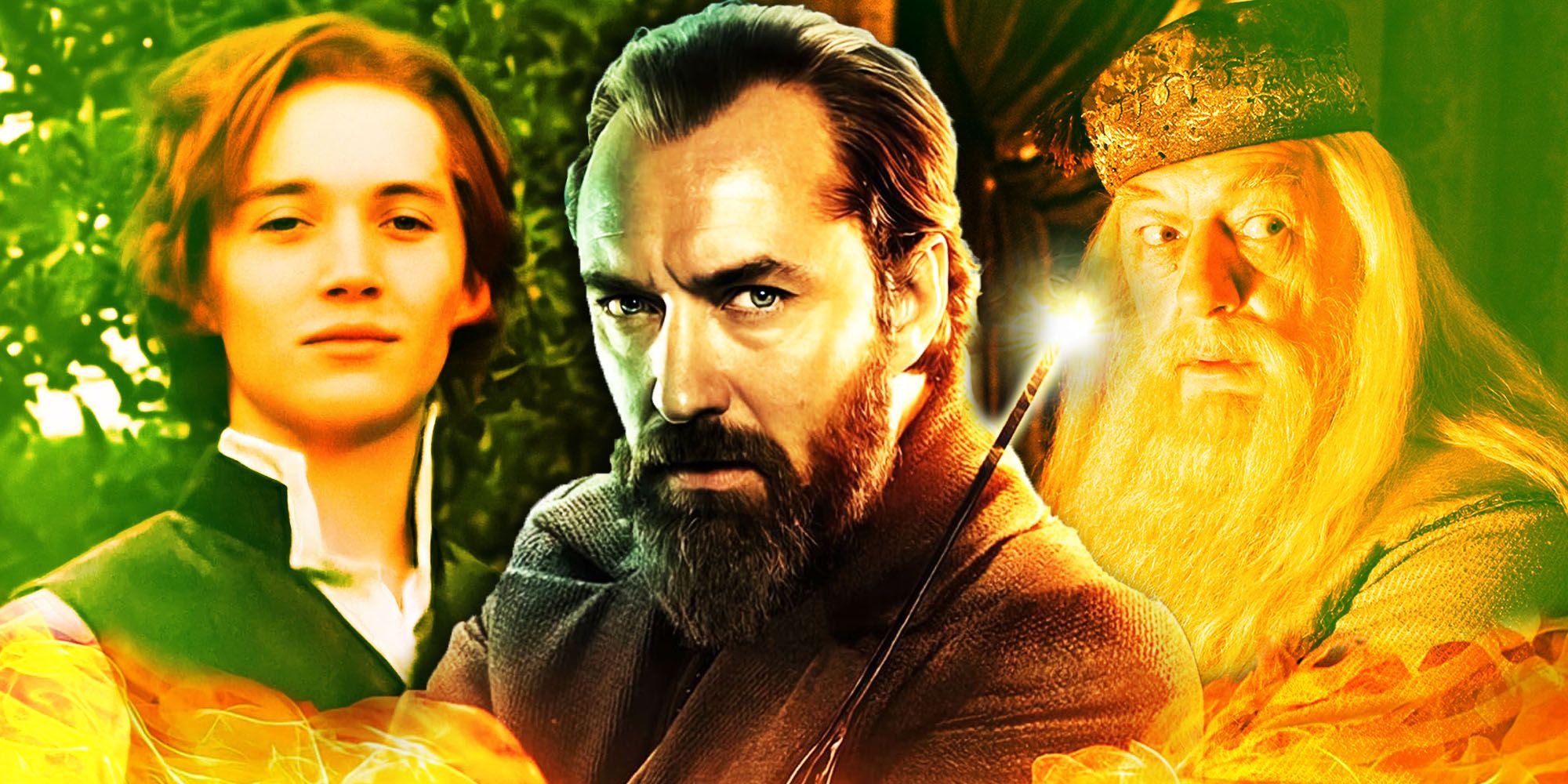
“The Life & Lies Of Albus Dumbledore”: A Complete Timeline Of The Harry Potter Headmaster’s Backstory
Albus Dumbledore's long life was full of key moments in wizarding world history, all of which would greatly impact Harry Potter's story.
Harry's Deathly Hallows Ending Connects With Philosopher's Stone
Harry Gaining The Deathly Hallows Paid Off His Philosopher's Stone Twist
The fact that Harry became Master of Death primarily by accident is highly significant at the end of Harry Potter. He was worthy of owning the Hallows because of his own selflessness, choosing to use them to enable his self-sacrifice rather than for personal gain. This twist at the end of Harry Potter and the Deathly Hallows was a full-circle moment since it perfectly connected to the choice that Harry made when he first faced Voldemort in Harry Potter and the Philosopher's Stone.
The Mirror of Erised hid the Philosopher's Stone, and only someone whose greatest desire was to protect it rather than use it could actually obtain it.
Dumbledore had used the Philosopher's Stone's protection as a test for Harry, and the Boy Who Lived passed with flying colors. The Mirror of Erised hid the Philosopher's Stone, and only someone whose greatest desire was to protect it rather than use it could actually obtain it. Harry proved himself to be selfless at 11, and this showed Dumbledore the type of boy who had become the Chosen One by chance. This same quality allowed him to obtain the Deathly Hallows, not for gain, but to protect those he loved. Dumbledore being considered Master of Death in Harry Potter completely undermines this poetic ending.


